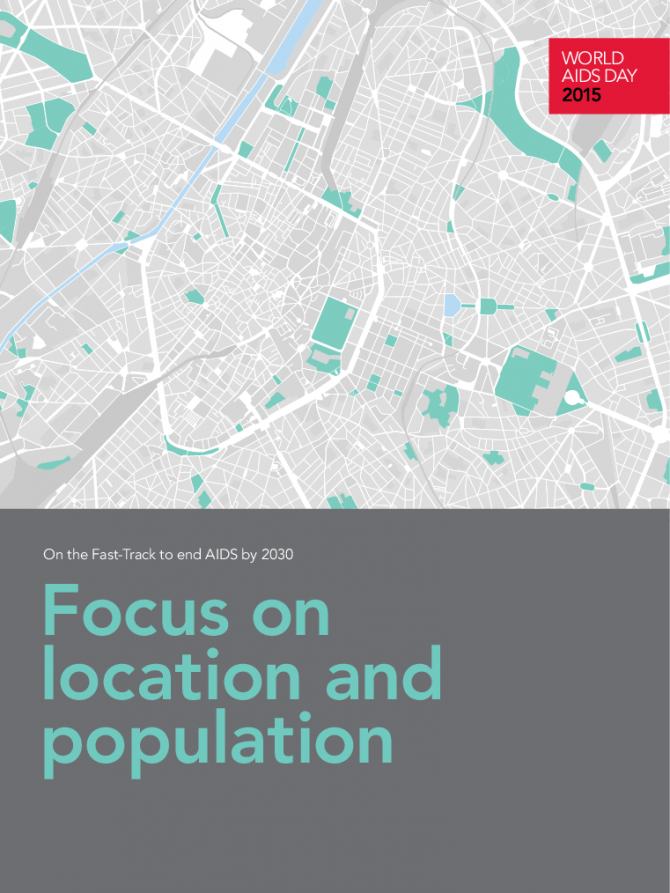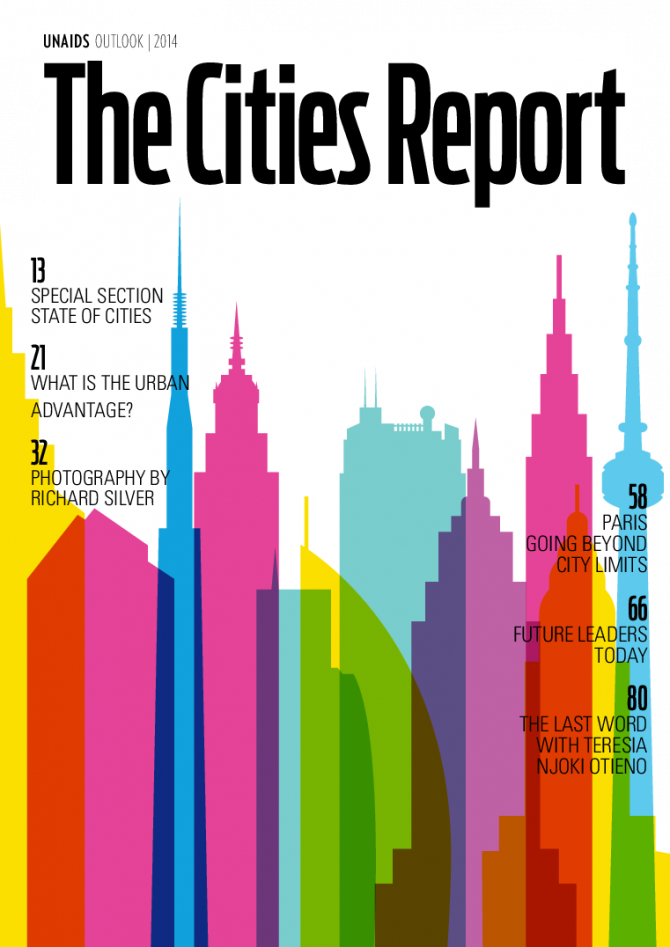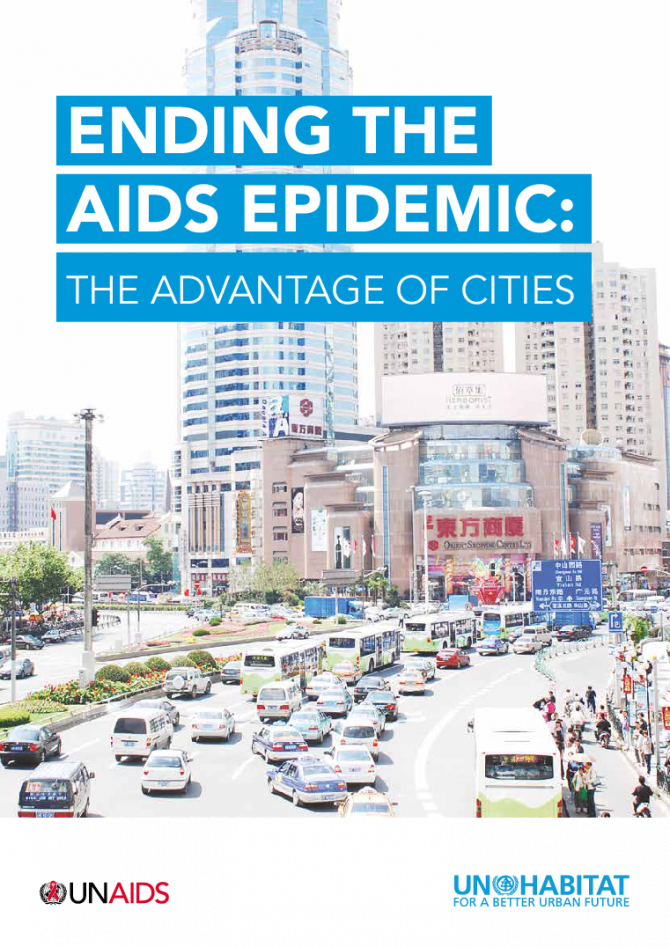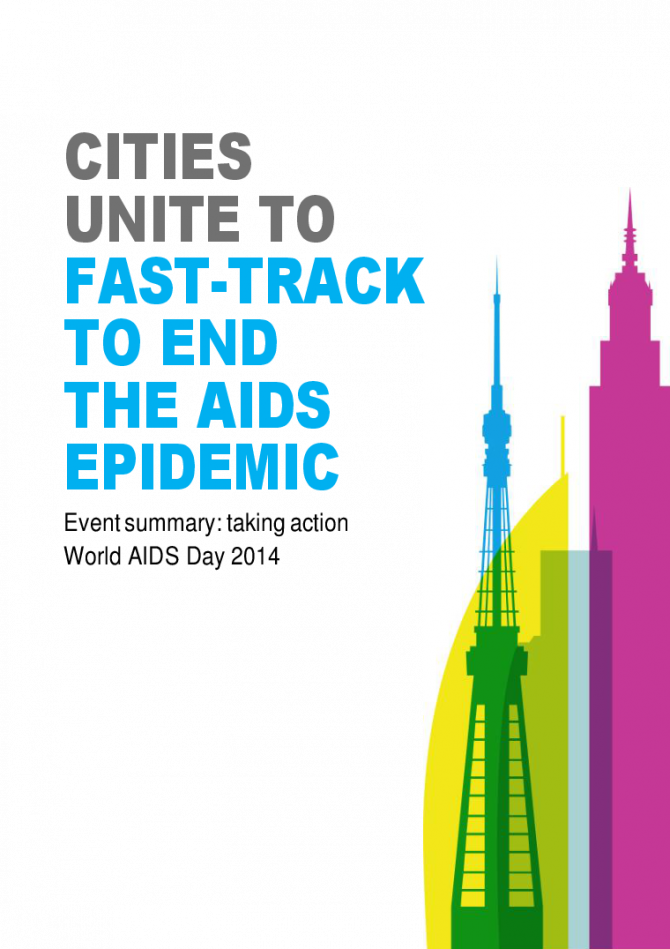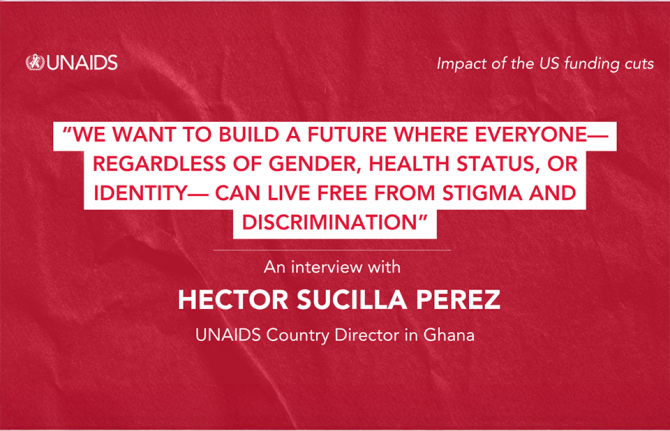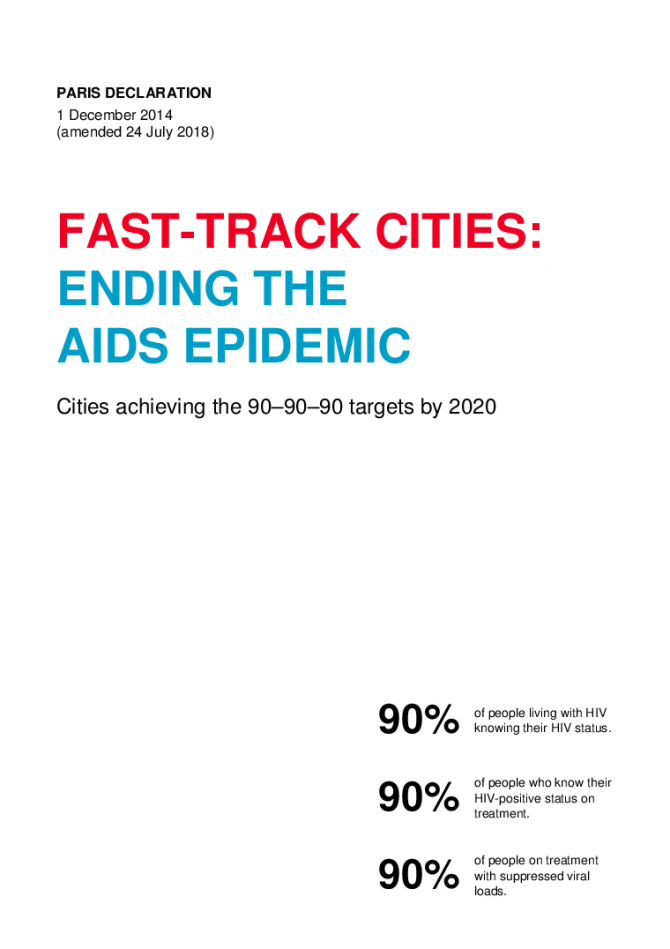Documents
On the Fast-Track to end AIDS by 2030: Focus on location and population
24 November 2015
Within the pages of this World AIDS Day report, Focus on location and population, are more than 50 examples of how countries are getting on the Fast-Track. It shows how governments are working with community groups and international partners to scale up health and social services that put people at the centre and located where they can do more people more good.
Read the publication on ISSUU
- Part 1 (Foreword - Conclusions)
- Part 2a (Where services are needed - Lesotho)
- Part 2b (Malawi - References)
Download


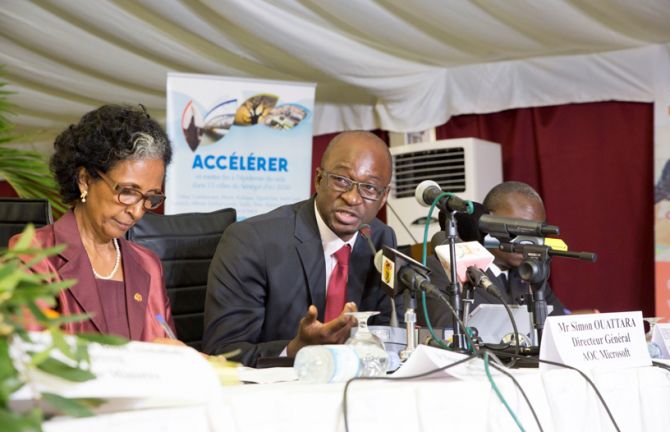


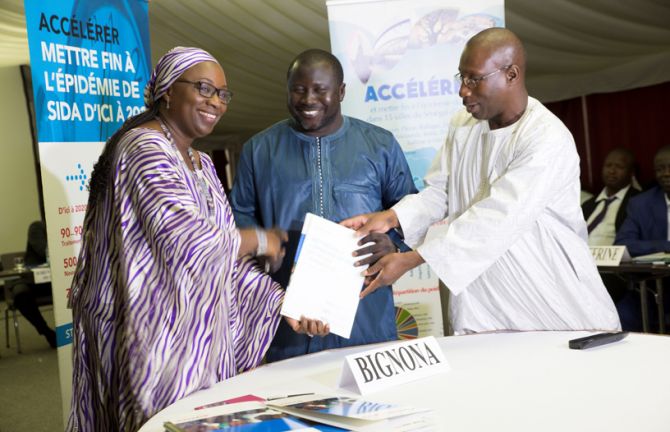
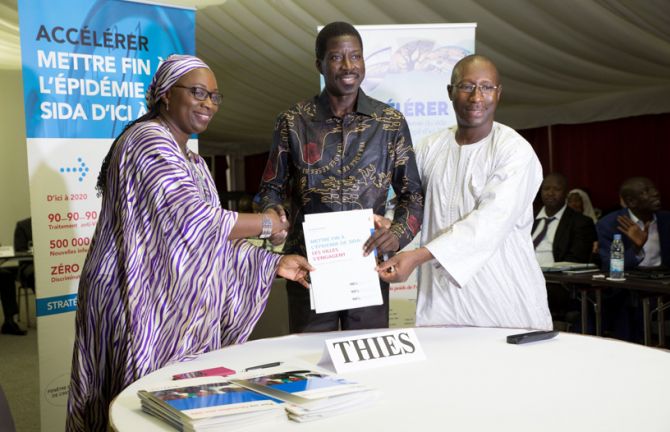
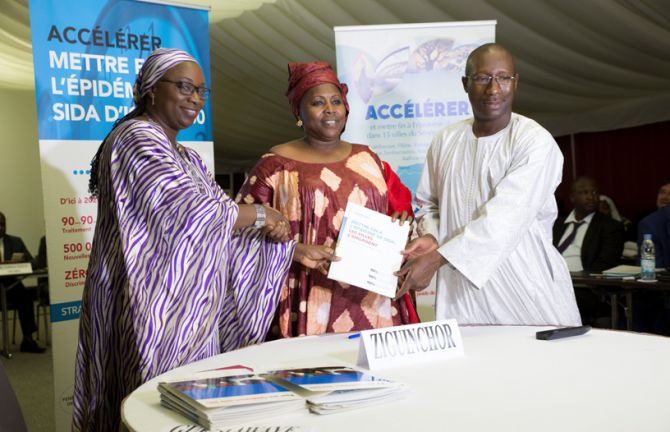
Update
Senegalese mayors commit to Fast-Tracking the HIV response in their cities
11 November 2015
11 November 2015 11 November 2015Fifteen Senegalese mayors have endorsed the Paris Declaration to end the AIDS epidemic in their cities. Since the majority of people living with HIV reside in urban areas, accelerating the AIDS response in cities could considerably contribute to reaching the HIV treatment target by 2020 and eliminating mother-to-child transmission in Senegal.
The cities that have committed to Fast-Tracking the HIV response are Dakar, Guédiawaye, Pikine, Rufisque, Ziguinchor, Saint Louis, Kaolack, Mbour, Tambacounda, Kolda, Thiès, Bignona, Bounkiling, Kaffrine and Fatick.
The mayors of these and 30 other cities participated in an event on 3 November in Dakar, when the Association of Senegalese Mayors signed a memorandum of understanding with Microsoft. The partnership, part of Microsoft’s CityNext programme, will help Senegalese cities innovate and better serve their citizens in areas such as health, education and transportation.
Quotes
“The signing of the cooperation agreement and the Paris Declaration provides an excellent opportunity for countries and partners to accelerate efforts to end the AIDS epidemic as a public health threat by 2030.”
"The initiative will allow Microsoft CityNext municipal governments, companies and individuals to make African cities more prosperous and sustainable."
"Reaching this ambitious target is within our reach if we commit ourselves and our resources to it."
“Beyond this ceremony, ending the AIDS epidemic is our shared commitment. Health is an important component of the Plan Senegal Emergent and the government’s policy in this area fully supports local communities that benefit from transferred competencies.”
Region/country
Related
Documents
The Cities Report
28 November 2014
Urban areas are also home to millions of people who have fallen through the cracks of social, political and economic life. People who lack access to education, health services and prevention measures face significantly higher health risks. Under these social conditions, many diseases including HIV spread more quickly. Additionally, poor sanitation and crowding foster the spread of tuberculosis, which is the leading cause of death among people living with HIV. Cities need to address their significant disparities in access to basic services, social justice and economic opportunities. Using a Fast-Track AIDS response, cities can improve social equality for people affected by HIV and those living with the disease, while also addressing related public health challenges in new and innovative ways to prevent disease. Methodology Additional resources

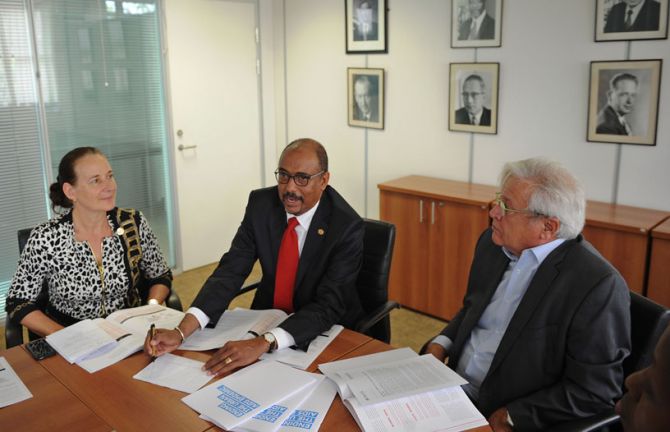
Press Release
UN-Habitat and UNAIDS call for renewed efforts to address HIV in urban areas
18 September 2015 18 September 2015NAIROBI/GENEVA, 18 September 2015—A new report by UN-Habitat and UNAIDS urges cities to do more to respond to HIV epidemics in urban areas. The report outlines that cities and urban areas are particularly affected by HIV, with the 200 cities most affected by the epidemic estimated to account for more than a quarter of all people living with HIV around the world.
The report, Ending the AIDS epidemic: the advantage of cities, was launched in Nairobi, Kenya, by the Executive Director of UN-Habitat, Joan Clos, and the Executive Director of UNAIDS, Michel Sidibé. It reveals that in many countries, rapidly growing cities are home to more than half of all people living with HIV and that many are facing challenges in ensuring access to HIV services.
“Although cities often have resources, viable health systems and the capacity for innovation and service delivery, they sometimes struggle to design and implement focused, effective and rights-based AIDS responses, often leaving behind the most vulnerable and marginalized populations,” said Mr Clos. “Cities are central to bringing a paradigm shift to the AIDS response—a concerted move towards shared responsibility between national and city authorities and community-based organizations in support of local leadership and local evidence to transform the social, political and economic determinants of HIV risk and vulnerability.”
The report highlights that city leaders have a unique opportunity to seize the dynamism, innovation and transformative force of the AIDS response to not only expand HIV services in cities but also address other urban challenges, including social exclusion, inequality and extreme poverty.
“Cities can lead change,” said Mr Sidibé. “As centres for innovation, cities can broker broad partnerships and use their vast resources to provide an inclusive, effective response to HIV based on evidence and grounded in human rights—to leave no one behind.”
In almost half (94) of the 200 cities most affected, HIV is transmitted mainly through unprotected heterosexual sex. In the remaining 106 cities, sex work, unprotected sex between men and injecting drug use are the main drivers of the epidemics. In the Asia–Pacific region, about 25% of all people living with HIV are estimated to reside in 31 major cities, while in western and central Europe, an estimated 60% of all people living with HIV reside in just 20 cities.
According to the new report, data from 30 countries that have conducted nationally representative household-based population surveys show that HIV prevalence among people 15–49 years old living in urban areas is higher than among those living in rural areas in most countries.
Even in countries that are still predominantly rural, cities are often home to disproportionate numbers of people living with HIV. For example, urban areas account for only 18% of Ethiopia’s population but for almost 60% of people living with HIV nationally.
The report outlines the need for cities to establish renewed efforts for an urban health approach that serves the evolving needs of cities and the people who live and work within them. It adds that these measures would help reach the UNAIDS Fast-Track Targets to end the AIDS epidemic as a global health threat by 2030.
The UNAIDS Fast-Track approach requires rapidly scaling up and focusing the implementation and delivery of proven, high-impact HIV prevention and treatment services: an approach that increasingly relies on urban leadership.
A number of countries have introduced specific legislation, national policies or strategies to respond to the needs of people living with and affected by HIV. However many countries continue to lag behind in allocating adequate resources and implementing inclusive and urban-friendly HIV programmes.
UNAIDS
The Joint United Nations Programme on HIV/AIDS (UNAIDS) leads and inspires the world to achieve its shared vision of zero new HIV infections, zero discrimination and zero AIDS-related deaths. UNAIDS unites the efforts of 11 UN organizations—UNHCR, UNICEF, WFP, UNDP, UNFPA, UNODC, UN Women, ILO, UNESCO, WHO and the World Bank—and works closely with global and national partners towards ending the AIDS epidemic by 2030 as part of the Sustainable Development Goals. Learn more at unaids.org and connect with us on Facebook, Twitter, Instagram and YouTube.
Contact
UN-Habitat NairobiTom Osanjo
tel. +254 722 631 599
Tom.Osanjo@unhabitat.org
UNAIDS Nairobi
Norha Restrepo-Lopez
tel. +41 79 447 3404
restrepolopezn@unaids.org
Press centre
Download the printable version (PDF)
Region/country
Documents
Ending the AIDS epidemic: the advantage of cities
18 September 2015
Cities gave rise to the first cases of HIV infection ever recognized, and the role of urban areas in the global AIDS response has only intensified over time. Globally, 200 cities account for roughly 25% of all people living with HIV. In many countries, a single city accounts for 40% or more of all people living with HIV.
Documents
Cities unite to Fast-Track to end the AIDS epidemic. Event summary: taking action World AIDS Day 2014
15 April 2015
Ending the AIDS epidemic by 2030 is feasible if the world’s major cities act immediately and decisively to Fast-Track their AIDS responses by 2020. Success will rely upon cities frontloading investments and stepping up the pace of delivering HIV services, especially the roll-out of antiretroviral therapy.


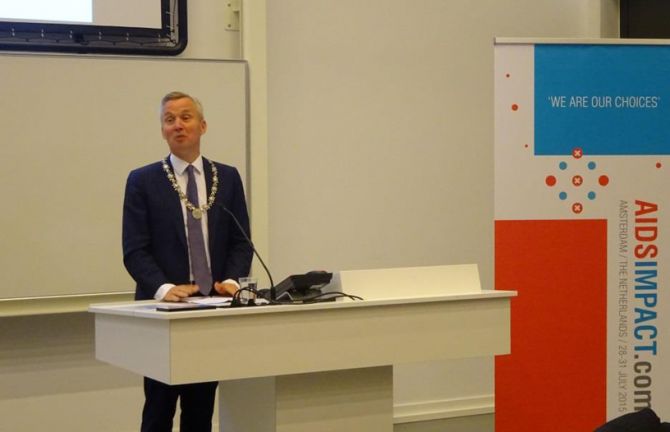
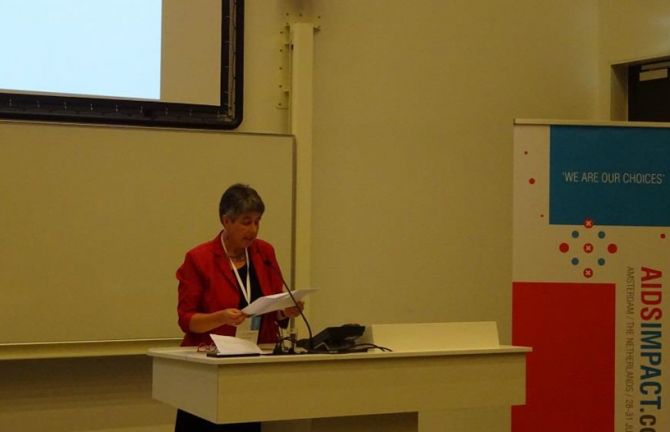
Update
Highlighting the need for a science and people centred approach in the AIDS response
03 August 2015
03 August 2015 03 August 2015The AIDSImpact 2015 conference held in Amsterdam from 28 to 31 July has heard appeals for the better integration of behavioural and psychosocial scientific research in the AIDS response. Researchers from around the world presented the latest findings in behavioural and psychosocial science related to HIV prevention, treatment and care, focusing both on the global level and on specific countries and communities hardest hit by the epidemic.
The conference promoted pioneering work on understanding the dynamics of a changing epidemic. There was a particular focus on new opportunities for HIV prevention thanks to the increased availability of biomedical interventions as well as of increased HIV-testing options. The key to their future success, however, lies in understanding the behavioural and psychosocial consequences, advantages and challenges in integrating such programmes within different global contexts.
Fast-Track cities
The Fast-Track cities approach was also covered during a special session on “The Tale of 3 Cities” where health officials from Sao Paulo, Amsterdam and San Francisco shared their experiences of the AIDS response. All three cities are signatories to the Paris Declaration, which commits authorities to putting their cities on the Fast-Track to ending the AIDS epidemic.
During the conference, the economic returns of the Fast-Track approach were also discussed. Each dollar invested in ending AIDS by 2030 can generate more than US$ 17 in net returns.
Focusing on key population groups
Participants also discussed issues faced by key population groups, with a particular emphasis on the gay community and men who have sex with men. Participants heard that stigma and discrimination continue to be a major obstacle to the Fast-Track approach.
Delegates heard that the Internet and other new technologies are increasingly important in the AIDS response, offering opportunities for innovative HIV prevention programmes.
Quotes
“By signing the declaration, Amsterdam has committed to locally implement local strategies for local people. Our commitment to the elimination of HIV at city level is embodied in the Joep Lange initiative that we have launched.”
“If we don’t accelerate the AIDS response in the next five years, we will not end the AIDS epidemic by 2030. It is not enough to rely only on biomedical science. We need behavioural science for a people centred approach to ensure that no-one is left behind.”
“The Netherlands is committed to the goal of ending the AIDS epidemic and to ensuring that no one is left behind in the response”.

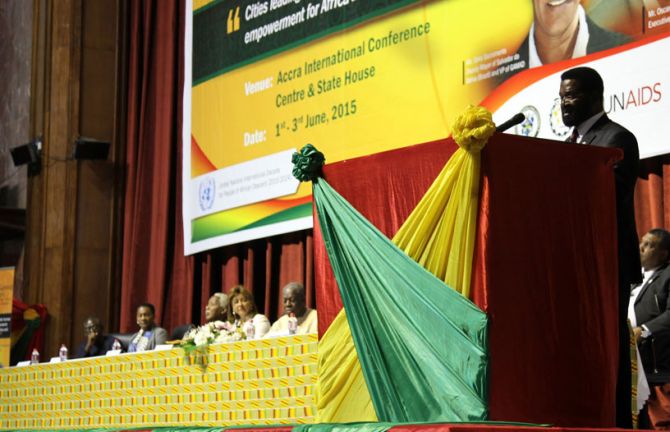

Update
Summit of African mayors and mayors of African descent mobilizes commitment to accelerate the HIV response
05 June 2015
05 June 2015 05 June 2015African mayors and mayors of African descent from more than 30 countries participating in a global conference in Accra, Ghana, explored how cities can accelerate the AIDS response and deliver specific results in HIV prevention, testing and treatment in the next five years.
The Fourth World Summit of Mayors and Leaders from Africa and of African Descent was held from 1 to 3 June and was hosted by the Lord Mayor of Accra, Alfred Vanderpuije.
During the summit, participants committed to the goal of ending the AIDS epidemic and discussed how to increase HIV testing, access to antiretroviral therapy and stopping new HIV infections among children.
Following a series of regional consultations, 18 mayors from Africa, Latin America and the United States of America signed the Paris Declaration on Fast-Track Cities, which calls for ending the AIDS epidemic in cities by 2030. The mayors agreed that by putting people at the centre of the response and addressing underlying issues, such as poverty, discrimination and violence against women and girls, their societies can be transformed.
The summit was convened within the framework of the International Decade for People of African Descent (2015–2024). It featured other thematic pillars, including gender equality and women’s empowerment, youth entrepreneurship and employment.
The event was co-organized by the Global Alliance of Mayors and Leaders from Africa and of African Descent, the African Renaissance and Diaspora Network, Inc., in partnership with the City of Accra, la Asociación Nacional de Alcaldes de Municipios con Población Afrodescendiente and UNAIDS.
Quotes
“As a member of the UNAIDS and Lancet Commission, I strongly endorse the Paris Declaration by mayors worldwide for Fast-Tracking the AIDS response in cities as a key strategy to end the AIDS epidemic by 2030. Together we will bring an end to the epidemic.”
“Addressing AIDS is an essential element of the summit because it lies at the core of our economic and social development efforts, since Africa is the hardest hit region. I am proud that Ghana has seen major reductions in HIV infections and AIDS-related deaths.”
“I am an advocate of the Paris Declaration. This is why in Brazil, together with the UNAIDS country office, we are mobilizing mayors and innovative partnerships to scale up the HIV response in cities.”
“In our technical assistance to Fast-Track cities, we aim to leverage their existing HIV programming to break down barriers to HIV testing, linkage to care and treatment for the populations with the highest HIV prevalence—women, people who inject drugs, sex workers and men who have sex with men.”
“If cities lead the way we will be able to reach the 90–90–90 targets.”
Region/country
Related
 Impact of US funding cuts on HIV programmes in Ghana
Impact of US funding cuts on HIV programmes in Ghana

08 April 2025
Documents
Fast-track cities: Ending the AIDS epidemic
01 December 2014
Working together, cities can take local actions for global impact. Leveraging our reach, infrastructure and human capacity, cities will build a more equitable, inclusive, prosperous and sustainable future for all of our residents—regardless of gender, age, social and economic status or sexual orientation.

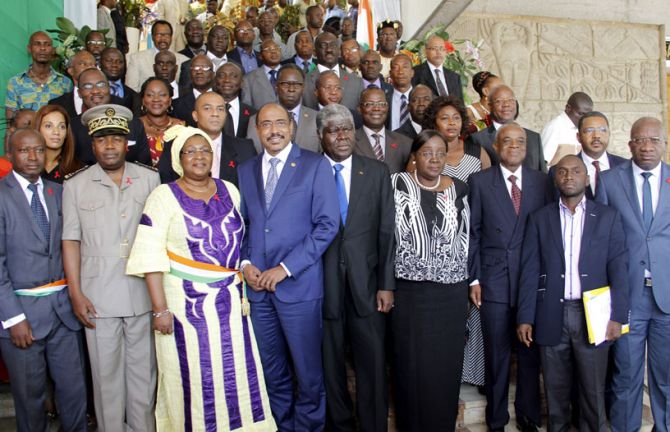
Update
Mayors in Côte d’Ivoire commit to ending AIDS as a public health threat by 2030
22 December 2014
22 December 2014 22 December 2014Mayors from major cities and urban areas in Côte d’Ivoire have come together to sign the Paris Declaration, pledging their support to accelerate the response to HIV over the next five years.
Thirteen mayors from the Abidjan district and around 20 from other major cities across the country joined UNAIDS Executive Director Michel Sidibé and the Governor of Abidjan, Beugré Mambé, to sign the Paris Declaration, putting their cities on the Fast-Track to ending the AIDS epidemic by 2030.
The Paris Declaration includes commitments to reach ambitious 90–90–90 targets by 2020, which will mean 90% of people living with HIV knowing their HIV status, 90% of people who know their HIV-positive status on antiretroviral therapy and 90% of people on treatment with suppressed viral loads.
It is estimated that around 40% of people living with HIV in Côte d’Ivoire live in Abidjan, which has an HIV prevalence of 3.6%, compared with 2.7% nationally.
The Paris Declaration was signed in Paris on World Aids Day 2014 by the Mayor of Paris, Anne Hidalgo, and more than 20 of her counterparts from cities around the world. Other mayors are now being invited to join the initiative.
Quotes
“The Ministry of Health fully supports UNAIDS’ Fast-Track Cities initiative aimed at engaging mayors and other city officials to step up their AIDS response and garnering support from multiple stakeholders, including affected communities, key populations, and technical and financial partners.”
“Our town has taken the lead for a long time thanks to a health facility offering counselling, testing and care services for people living with HIV. We fully endorse UNAIDS’ initiative and we plan to triple our AIDS budget from 10 million CFA francs to achieve the 90-90-90 goal by 2020.”
“We already know that the pace of urbanization is unstoppable. Indeed, in 2030 at least 6 out of 10 people will live in cities. Cities will become the most important magnets. Cities will definitely enable the democratic change we always have longed for. This will contribute to human security, which is essential for social stability.”

